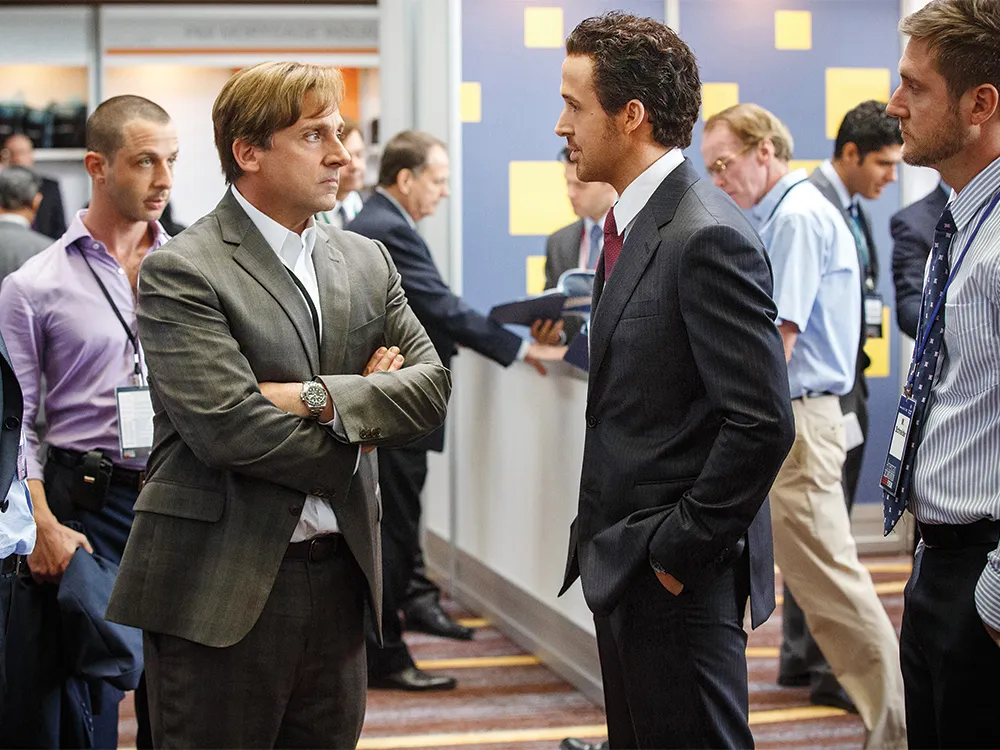The Big Short: A Crash Course in Financial Chaos and Hard Lessons

Money Matters is proudly brought to you by Bank Windhoek
“The Big Short” isn’t just a movie; it’s a stark, often darkly comedic, dissection of the 2008 financial crisis. It takes a complex and daunting subject – the housing market bubble and its collapse – and translates it into a compelling narrative that’s both informative and infuriating.
A Summary: Predicting the Implosion
The film centers around a handful of outsiders who, through meticulous research and a healthy dose of skepticism, recognize the impending disaster long before Wall Street does. Michael Burry, a hedge fund manager with a unique perspective, discovers that the housing market is built on a foundation of shaky subprime mortgages. He realizes that these mortgages, bundled into complex financial instruments called collateralized debt obligations (CDOs), are essentially ticking time bombs.

Burry decides to “short” the housing market, betting against its success by purchasing credit default swaps – essentially insurance policies that pay out if the housing market collapses. His actions attract the attention of other savvy investors, including:
- Mark Baum: A cynical and volatile hedge fund manager deeply distrustful of Wall Street.
- Jared Vennett: A Deutsche Bank salesman who sees the potential for massive profits.
- Charlie Geller and Jamie Shipley: Two young, ambitious investors operating out of a garage.
These individuals, each with their own quirks and motivations, embark on a journey to understand the intricacies of the housing market and capitalize on its impending collapse. They delve into the world of mortgage-backed securities, CDOs, and credit default swaps, uncovering a web of greed, incompetence, and outright fraud.
As the housing market begins to falter, their predictions prove tragically accurate. The film vividly portrays the unfolding crisis, highlighting the devastating consequences for ordinary people who lose their homes and livelihoods. It also exposes the systemic failures of the financial industry, the regulatory bodies, and the rating agencies that enabled the crisis to occur.

Money Lessons from the Meltdown
“The Big Short” is more than just a cautionary tale; it’s a masterclass in financial literacy. Here are some key money lessons that emerge from the film:
- Do Your Due Diligence: The film emphasizes the importance of independent research and critical thinking. The protagonists didn’t blindly follow the conventional wisdom; they questioned everything and dug deep into the underlying data. This lesson is paramount in any financial decision, whether it’s investing in stocks, buying a home, or taking out a loan.
- Understand Complex Financial Products: The film exposes the dangers of investing in products you don’t fully understand. CDOs and other complex financial instruments were designed to obfuscate risk and generate fees. The film stresses the importance of financial literacy and the need to demystify complex financial jargon.
- Be Wary of Conflicts of Interest: The film highlights the pervasive conflicts of interest that permeate the financial industry. Rating agencies, for example, were paid by the very institutions they were supposed to be rating, creating a perverse incentive to inflate ratings. Recognizing and mitigating conflicts of interest is crucial for making sound financial decisions.
- Don’t Trust the Crowd: The film shows how easily the crowd can be misled by hype and irrational exuberance. The housing market bubble was fueled by a collective delusion that house prices would always rise. The film reminds us that it’s important to think independently and resist the urge to follow the herd.
- Systemic Risk Matters: The film illustrates the interconnectedness of the financial system and the potential for systemic risk. The collapse of the housing market triggered a chain reaction that brought down the entire financial system. This lesson underscores the importance of understanding how individual financial decisions can have broader implications.
- Greed Can Be Blinding: The movie shows how greed can cause people to ignore obvious warning signs. Many people within the financial sector knew the housing market was a bubble, but their greed overrode their logic.
“The Big Short” is a powerful reminder that financial markets are not always rational and that even experts can be wrong. By understanding the lessons of the 2008 crisis, we can make more informed financial decisions and protect ourselves from future meltdowns.
Listen to Money Matters with Script on 99FM
For more go to www.99fm.com.na to tune in.